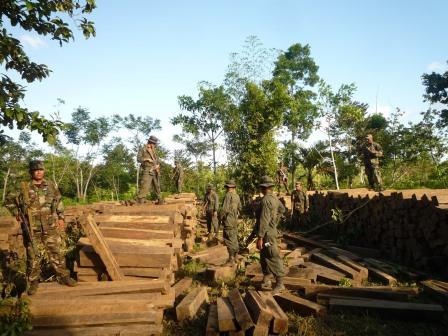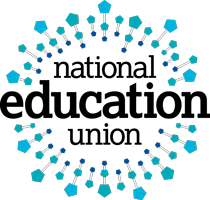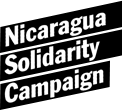NSCAG expresses concerns over Global Witness report on Nicaragua
NSCAG News |
on: Monday, 17 July 2017

Troops of a Nicaraguan army eco battalion confiscate an illegal shipment of logs from the Bosawas biosphere reserve. Eco battalions were set up in Nicaragua in 2011 to protect Nicaraguan forests.
On 13 July, the international human rights organisation, Global Witness, published their Annual Report 2016, entitled ‘Defenders of the Earth, global killings of land and environmental defenders in 2016’. The report is based on findings from 24 countries including Nicaragua, Honduras and Guatemala.
With the growing levels of harassment and killings of defenders internationally this is a much needed publication of major importance. However, we have serious concerns about the conclusions of the section of the report relating to Nicaragua.
Global Witness prides itself on reaching conclusions based on ‘bold and thorough investigations’. However, in the case of Nicaragua we believe the report falls far short of these high standards. The Nicaraguan section appears to be based on sweeping generalisations based on flawed and incomplete evidence from very limited sources.
One of the most damaging conclusions is the accusation that ‘Nicaragua has overtaken Honduras as the world’s most dangerous place for activists per capita’. We are deeply disturbed that the report should even equate Nicaragua with Honduras – a country with a notorious record of systematic repression of political and community activists on the part of government authorities, the police, army and large land owners.
Isolated incidents have been presented out of context and exaggerated into very damaging accusations, falsely implying widespread abuses of the rights of environmental defenders and of human rights in general.
The report at no point recognises the priority that the Nicaraguan government gives to addressing environmental issues and reducing carbon emissions reductions. As part of a ‘green revolution’, the Government’s target is 90% reduction by 2020.
At a time when the US is threatening economic sanctions against Nicaragua that could potentially destabilise not just Nicaragua but the whole region, it is even more incumbent on internationally respected organisations such as Global Witness to ensure that assertions that they make are based on sound evidence.
For a more detailed analysis of the Global Witness report on Nicaragua, follow the link to a blog written by John Perry who lives in Nicaragua and works with a local environmental NGO. The blog is entitled ‘Is Nicaragua really the world’s most dangerous place to be an environmental defender?’





